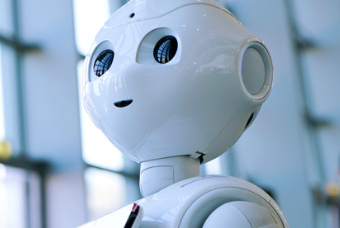Robots in Service: The Human Connection

In the tech-driven landscape, a pivotal question arises: Should service robots resemble humans? Professor Markus Blut explores the impact of human-like service robots on customer experiences.
Robot anthropomorphism, the extent to which robots mimic humans, influences customer experiences. While it enhances interactions, it can evoke the 'uncanny valley' effect, raising questions about our identity.
Studies on anthropomorphism's effect on customer intentions are inconclusive. Professor Blut’s meta-analysis sheds light on its profound positive impact, facilitating human-robot interactions and familiar social rules application.
Anthropomorphism enhances ease of use, perceived safety, and usefulness but doesn't establish deep rapport. For personal connections, businesses may still need human employees.
Robot features trigger anthropomorphism. Emotions and human-like behaviours matter, while gaze doesn't significantly affect perception.
Positive effects depend on robot and service type. Female robots yield stronger effects, but robot size, 'cuteness,' and form don't matter. Service context determines robot choice.
Service robots offer opportunities and challenges. Understanding anthropomorphism's impact helps businesses integrate these technologies into their operations, promising a future of convenience and new dimensions in human-robot interaction.
The question of human resemblance remains at the heart of this robotic revolution.
View the full article published in Journal of Academy of Marketing Science (https://link.springer.com/article/10.1007/s11747-020-00762-y ).
